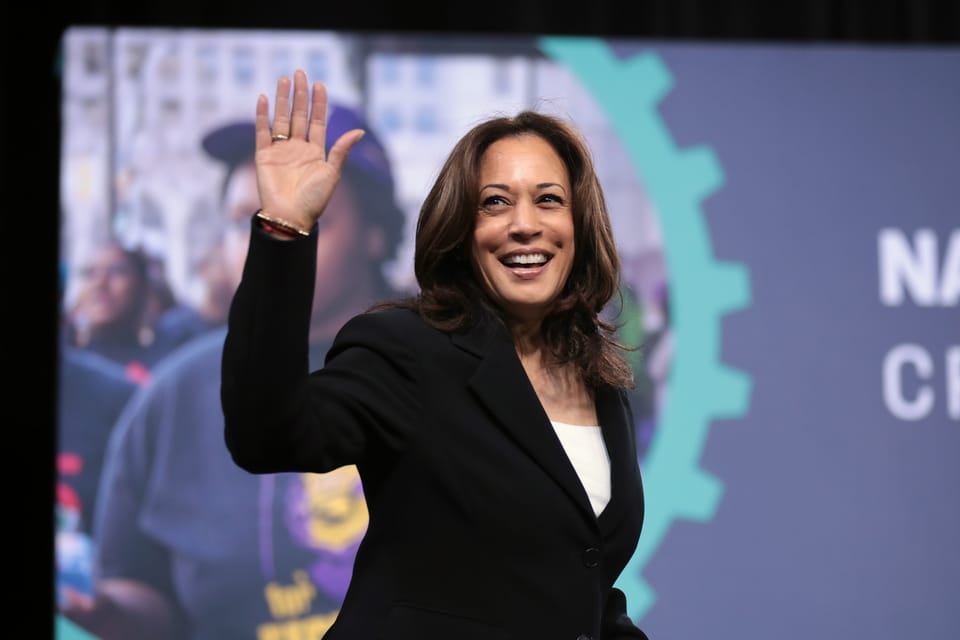Kamala Harris Should Learn From Mitt Romney

With the abrupt exit of President Biden from the 2024 Democratic ticket, public attention has focused on Vice President Kamala Harris as the presumptive Democratic nominee. Harris currently trails former President Donald Trump in polls, but received a substantial bump from her entry into the race, and could be poised to triumph in swing states and liberal strongholds. But Harris should take a lesson from a former national loser with circumstances that mirror hers: Mitt Romney.
In the run-up to the 2012 election, Barack Obama seemed beatable. His tumultuous introduction of the Affordable Care Act, low approval ratings and progressive stances put him at a disadvantage against a strong challenger. Enter Mitt Romney. Though Romney initially gained traction, he lost to Obama in an electoral college wipeout.
Here are 7 similarities between Romney and Harris, and how the vice president can learn from them:
Lack of Unity in the Party
Romney entered the 2012 primary with a slew of opponents. At various points, Rick Santorum, Newt Gingrich and even businessman Herman Cain beat him in polls. The rise of the Tea Party movement and varying branches of conservatism undercut Romney, and a long primary season served to highlight his weaknesses to voters through ceaseless attacks from his Republican opponents.
For Harris, progressive voters hemorrhaged from the Biden campaign by the "uncommitted" movement and the pro-Israel stances of the president. The veep has also been haunted by low approval ratings and discontent with her handling of the border. Like Romney, her party has come to her side only towards the end of the campaign, and this may hurt her in the general, unless she works to acknowledge address that issue.
Incumbency Disadvantage
One criticism that could never be leveled at Obama is that he was ineffective: his 2012 campaign rested on the laurels of the accomplishments of his term, including his healthcare plan and the response to the 2008 financial crash. Romney, on the other hand, had little to brag about, and it showed in his debate performances.
Though Trump is not technically an incumbent, he is operating with all the advantages of one, and in fact many of those granted to a challenger as well. He is a well-known name across America (notorious is another word) and voters are familiar both with how he operates as an elected official and on the sidelines, criticizing the Biden administration's handling of the economy and immigration. Unlike any president in recent memory, Trump has stayed in the public eye since he left office, through scandals and a remarkably long presidential campaign. Harris will have to work uphill to counter the influence Trump has already had.
Rallying Point
Earlier, I mentioned that Obama seemed beatable in 2012. That is, until May 2nd, 2011, when Navy SEALs shot and killed Osama Bin Laden. The triumphant Obama gave a special address to the American people, which many see as a turning point in the 2012 campaign.
Trump's rallying point came when he was grazed by a gunman's bullet at a rally in Pennsylvania. The powerful image of Trump pumping his fist with blood on his face as the Secret Service struggled to cover his body with theirs. The moment switched the narrative of his campaign from a belligerent crusader to that of a wounded martyr, and voters seemed to support him in more recent polls. Harris has yet to have a campaign-defining experience like Trump's, and she will need to work harder to generate support.
Rabid Fan Base
Obama was washed into office on a wave of support from college students and Black fundraisers. Trump similarly won in 2016 because of his broad and dedicated MAGA fan base, which treats him as somewhat of a living god, sticking with him through convictions and scandals.
The "Coconut Hive," endorsed by the likes of Charli XCX, has helped Harris with this problem, but it will be difficult to match the massive cult of personality that Trump brings to the table.
Scandals
The attacks on the Ben-Ghazi base and the ongoing war in Afghanistan under Obama generated controversy, but the Romney campaign failed to make either a campaign issue that would reverberate with voters. They instead focused their attacks on nebulous and often complex economic issues that voters failed to understand. Meanwhile, the Obama campaign painted Romney as a money-hungry elitist.
Trump is the first person to ever run for president as a convicted felon, and there are numerous accounts of sexual misconduct and rape surrounding his name. Yet Biden and now Harris haven't focused their campaigns on these obvious slam-dunks and instead promoted Biden's infrastructure and prescription drug wins, which, while equally important, don't stick with voters as well.
Identity Troubles
Romney's Mormonism was a consistent issue in the 2012 campaign, as it turned off evangelicals, commonly a backbone of the Republican Party.
Harris, running to be the first female president and only the second person of color, faces similar issues, especially running against a notoriously xenophobic white male ticket.
Unconvincing Veep
For his veep pick, Romney passed over popular Midwestern governors and senators like Tim Pawlenty and Rob Portman to choose a little known Representative, Paul Ryan, of Wisconsin, a state Republicans hadn't won since Reagan's 1984 sweep. This choice proved even more mystifying when then-VP Biden wiped the floor with Ryan at the vice presidential debate. While Ryan was probably low on the list of reasons while Romney lost, he certainly didn't help.
Harris's vice presidential shortlist contains many Ryan-esque choices. Governor Tim Walz of Minnesota is an unconvincing sexagenarian; Governor Andy Beshear is a mild governor from a deep-red state. Harris should lean more towards someone like Senator Mark Kelly, who could bolster her campaign.
If Harris works to address all these problems, she has a shot at winning. If not, she's just another Mitt Romney.
